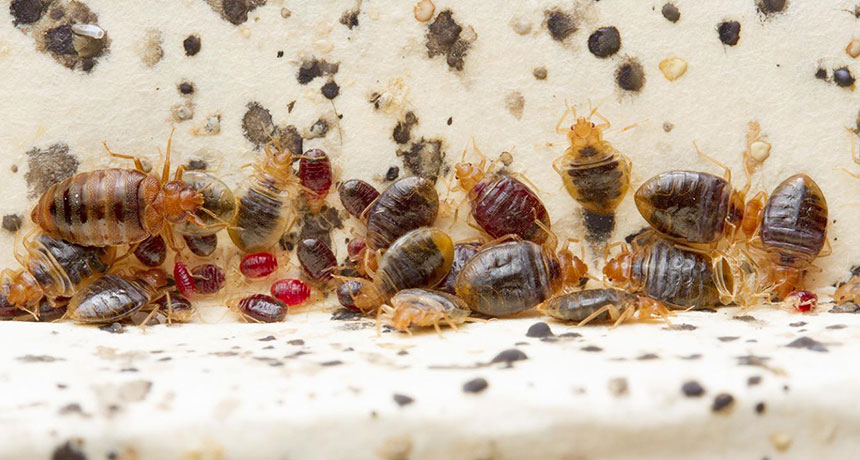allergy The inappropriate reaction by the body’s immune system to a normally harmless substance. Untreated, a particularly severe reaction can lead to death.
asthma A disease affecting the body’s airways, which are the tubes through which animals breathe. Asthma obstructs these airways through swelling, the production of too much mucus or a tightening of the tubes. As a result, the body can expand to breathe in air, but loses the ability to exhale appropriately. The most common cause of asthma is an allergy. Asthma is a leading cause of hospitalization and the top chronic disease responsible for kids missing school.
bug The slang term for an insect.
chemical A substance formed from two or more atoms that unite (bond) in a fixed proportion and structure. For example, water is a chemical made when two hydrogen atoms bond to one oxygen atom. Its chemical formula is H2O. Chemical also can be an adjective to describe properties of materials that are the result of various reactions between different compounds.
chronic A condition, such as an illness (or its symptoms, including pain), that lasts for a long time.
entomology The scientific study of insects. One who does this is an entomologist.
excrete To remove waste products from the body, such as in the urine.
feces A body's solid waste, made up of undigested food, bacteria and water. The feces of larger animals are sometimes also called dung.
insect A type of arthropod that as an adult will have six segmented legs and three body parts: a head, thorax and abdomen. There are hundreds of thousands of insects, which include bees, beetles, flies and moths.
pheromone A molecule or specific mix of molecules that makes other members of the same species change their behavior or development. Pheromones drift through the air and send messages to other animals, saying such things as “danger” or “I'm looking for a mate.”
plague (noun) A term for any horrific infection that spreads easily and kills many people, usually quickly. Best known are the infections caused by the bacterium Yersinia pestis. Indeed, they are commonly referred to simply as the plague. (verb) A common term for being beset by unpleasant conditions, events or circumstances — ones that cause serious impacts.
residue A remnant or material that is left behind after something has been removed. For instance, residues of paint may remain behind after someone attempts to sand a piece of wood; or sticky residues of adhesive tape may remain on the skin after a bandage is removed; or residues of chemicals may remain in the blood after exposure to a pollutant.
symptom A physical or mental indicator generally regarded to be characteristic of a disease. Sometimes a single symptom — especially a general one, such as fever or pain — can be a sign of any of many different types of injury or disease.
urban Of or related to cities, especially densely populated ones or regions where lots of traffic and industrial activity occurs. The development or buildup of urban areas is a phenomenon known as urbanization.
vermin Pest animals that people find noxious or disgusting — such as flies, lice, bedbugs, roaches, mice and rats. Owing to their size, speed and ability to reproduce quickly, these animals can be hard to control. Many also can spread disease.








